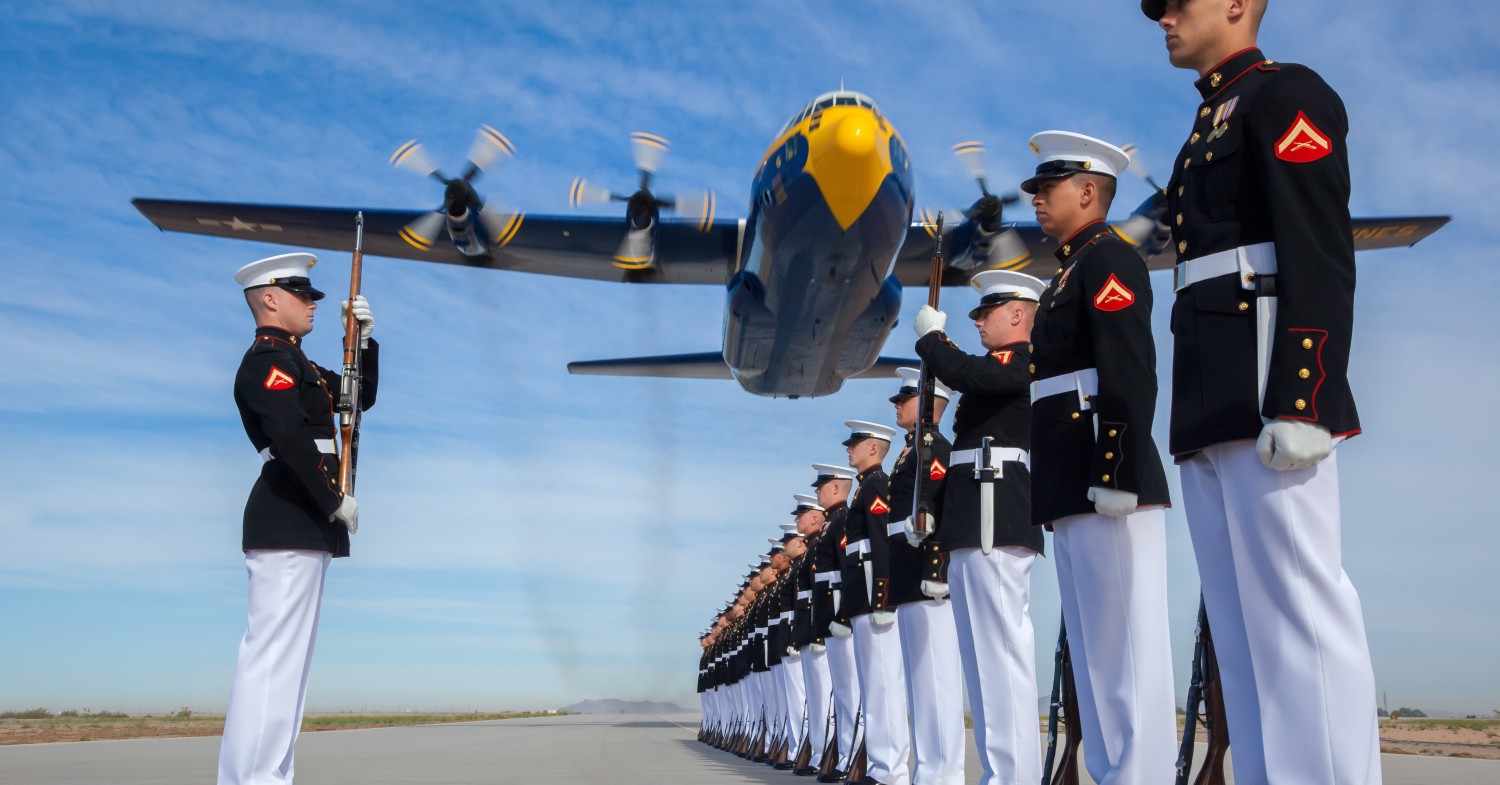
How Long is an Aerospace and Defense MBA Program?
Aerospace & defense MBA programs combine online learning and in-person [...]

When people think about the military, they typically envision soldiers undertaking combat or peacekeeping missions. Those are certainly critical military functions. However, they’re hardly the start and end of the military experience.
People tend to forget that the military is a huge operation requiring all types of support and logistics services to keep it running. Someone has to make sure military personnel are clothed, fed, housed, paid on time, and provided medical care. Someone must manage transporting supplies and weapons from one place to another. Someone has to oversee acquisitions and contracts. All those someones collectively make up the military’s massive logistics operation.
The military does not require an MBA for any of these essential positions, but it has plenty of roles in which someone with an MBA would be more efficient and effective. An MBA can help you qualify for those roles and succeed in them. That’s why the military needs MBAs and why an MBA can help you build a promising future in the US military.
The military depends on individuals skilled in all of the traditional business disciplines, including:
| University and Program Name | Learn More |
|
Pepperdine University:
Online Master of Business Administration
|
|
|
Stevens Institute of Technology:
Online Master of Business Administration
|
|
|
Merrimack College:
Master of Science in Leadership
|
|
|
Merrimack College:
Master of Science in Management
|
|
|
The University of Tennessee:
Online Master of Business Administration
|
You can develop the skills highlighted in the previous section by attending graduate school and completing an MBA program. This degree, which typically takes between one and two years to complete, provides graduates with needed, transferable skills valued by the military and business world alike.
Attending business school means that you likely already have some relevant work experience, as many programs require at least a few years of post-undergraduate professional experience as a prerequisite to admission. Business professors routinely call on students to draw from their professional lives for case studies and projects. You and your classmates add value in an MBA class.
Most students’ experiences are incomplete. Your previous roles may have included some financial components such as budgeting, but do you have a thorough understanding of the managerial and analytical components? MBA degrees focus on graduating students confident and knowledgeable in all areas of traditional core business principles, including accounting, finance, economics, marketing, management, statistics, and operations.
While some learners decide to pursue a traditional MBA with no concentrations, other find that they want to build specialized knowledge and skill sets in areas such as aerospace and defense, supply chain management, strategy, or information technology management. Customized programs exist for this purpose.
Whether you plan to enroll in a part-time or full-time MBA, b-school provides the opportunity to engage in flexible learning that can work around your military schedule. In fact, the military may even help cover the costs of your MBA. While the Yellow Ribbon Program applies only to veterans, some GI Bill education benefits can be used while still on active duty.
Much of this guide focuses on the value of earning and using an MBA while still in the military, but your MBA can prove just as valuable when you return to civilian life. Data collected by the National Center for Education Statistics show that MBAs are the most popular option for graduate school attendees, and for good reason.
An MBA program provides the type of transferable skills that can be applied in many different facets outside the armed forces. While not every individual who attends business school will be the next Jaime Dimon (JPMorgan Chase CEO) or Sheryl Sandberg (Facebook COO), MBAs have proven valuable time and time again when it comes to increasing salaries, upgrading titles, and expanding responsibilities.
The Graduate Management Admission Council conducts the annual Corporate Recruiters Survey to better understand recruiters’ attitudes towards b-school graduates. Within the 2021 survey results, 90 percent of recruiters planned to hire MBA graduates worldwide, while 94 percent of those in America planned to hire from this pool. A further 37 percent stated they believed demand for those who attended business school would expand over the next five years, while 55 percent stated they believed it would remain stable.
Your MBA credentials can also help ensure a robust salary in your post-military service years. Professionals with this type of advanced degree earned an average salary of $115,000 per year in 2021; in contrast, those with bachelor’s degrees earned an average of $65,000
As someone with military bonafides returning to civilian life with an MBA, your experience can prove especially valuable. Veterans with graduate degrees possess a unique blend of discipline, teamwork, integrity, and leadership alongside the business acumen needed to manage teams, perform under pressure, and make decisions informed by experience.
For some, leaving their military background behind may mean moving towards entirely different career goals. For others, the types of projects they worked on during active service and the contacts they made will continue to be part of their professional lives for years to come. Those who fall into the second category could be a great fit for an aerospace and defense MBA, as the skills learned in these programs are valued in military and civilian jobs alike.
The University of Tennessee-Knoxville’s Haslam College of Business provides one of only two aerospace and defense MBAs currently available, offering it in a hybrid format combining online study with in-person residency periods to support flexible learning. Offered at an accelerated pace, the program can be completed in one year by those who meet its eligibility requirements.
To meet MBA admission requirements, applicants should possess several years of relevant professional experience; those with previous military and/or defense experience are preferred candidates. These Master of Business Administration programs provide the type of leadership skills and business knowledge prized by military brass and A&D industry recruiters alike.
Questions or feedback? Email editor@noodle.com

Aerospace & defense MBA programs combine online learning and in-person [...]

Anyone with professional military, A&D industry, or business experience interested [...]

The GI Bill, the Yellow Ribbon Program, and the Military [...]

A&D MBA programs prefer students with industry or military credentials [...]

Both the military and the aerospace and defense industries need [...]
Categorized as: Business Administration, Management & Leadership, Business & Management